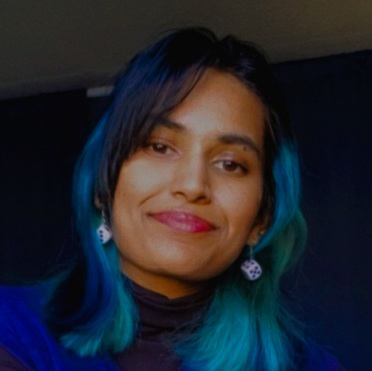A place for ambiguity
A place for ambiguity

K.C.E.
Beyond Bullying Project
Research Assistant
Labels. Or, what I like to refer to them as: the bane of my existence.
Queer labels are supposed to be empowering. They are supposed to invoke feelings of belonging. Feelings of inclusivity. However, these labels also create a problematic binary: a social pressure to either identify with the LGBTQ+ community or to completely deny queerness. Neither makes space for expressions of sexual ambiguity.
These labels then create expectations of presentation. Whether it’s being asked why I don’t look like ‘a they/them’ when I’m in a sundress on a picnic or it’s being told I look “too masculine” for a woman with my short hair hidden under a beanie while dressed in all black baggy clothing at a 7/11, these expectations fuel people’s binary judgements of what it means to be authentic in such diverse community.
While identifiers like gay, lesbian, and bisexual allow people to create communities rooted in shared experiences of queerness, they also unfortunately tend to exclude those who do not adhere to narrow definitions and understandings of these labels within the LGBTQ+ community.
Ever since coming out as bisexual, I’ve often found that bisexuals (regardless of gender) are expected to find men repulsive and undesirable while also being attracted to them. And in the event that a bisexual person does end up with a man, then they have settled for a man; thus, disappointing the bi community. Not to mention that if a bisexual has never had a same sex partner or they end up in a relationship with the opposite sex, they are too often not considered as ‘real’ bisexuals and instead viewed as practically ‘straight.’
This obsession with authenticity confuses me.
Who is a true bisexual?
What is ‘gay enough?’
Because we seek validation in our queer communities, we may be quick to play our expected roles. Whether it’s a bisexual wearing heavy eyeliner, or a masc lesbian adopting stereotypically male mannerisms, this desire to be validated by others who identify with the same labels forces individuals to fit themselves into categories rather than allowing them to explore their own expressions.
I have always felt this pressure to label myself. Whether it was when it took me years to come out as bisexual or whether it was me having a gender identity crisis two months ago while watching Tik Toks of pretty boys, I could never escape this pressure to categorize myself.
What am I? What do I perceive myself to be? What do I want others to perceive me as?
These are the questions I always find myself pondering. I could be getting dressed and suddenly feel repulsed by every feminine article of clothing I try on, only finding comfort in that one shirt I stole from my brother and the baggiest pair of sweatpants that hide all my curves. Or, I could be putting on a face full of makeup at 3am and trying on dresses to feel pretty. Regardless, the number of times I have switched between hating and loving my style, my body, my hair, my aesthetic, my labels, or even my entire existence, far exceeds the time and energy I’ve spent worrying about anything else in relation to my queerness.
When I identify as a woman people expect me to present as such, so when I dress/present as more masculine in my all black baggy clothing, short hair and beanie, people question why I identify as she/her. But if Im spending the hot summer weather in a sundress while identifying as they/them, people wonder why I physically present more as a female rather than looking androgynous. In either situation people question the validity of my identity. They look to determine whether I’m accurately acting according to my label based on their expectations of the label rather than adapting their expectations to accept me.
My sexuality, my gender, and my authentic self remain as questions that I struggle to answer. However, what I’ve come to realize is that I don’t need to know the answer. That it’s okay to live in the ambiguity of identity because labels are only a small part of who I am. My experiences are more than singular words like ‘bisexual’ or ‘woman,’ because I am more than what society expects me to be.
Resisting categories or embracing ambiguity does not make my queerness any less valid. It simply means that I chose not to adhere to the confines of a category. My expression is limitless and does not need to be defined for the convenience of others.
Because, at the end of the day, my ambiguity is my truth. In a world where everyone’s journey to self discovery is their own, who’s to say mine is any less authentic.
Photo by Guillaume Bolduc on Unsplash
